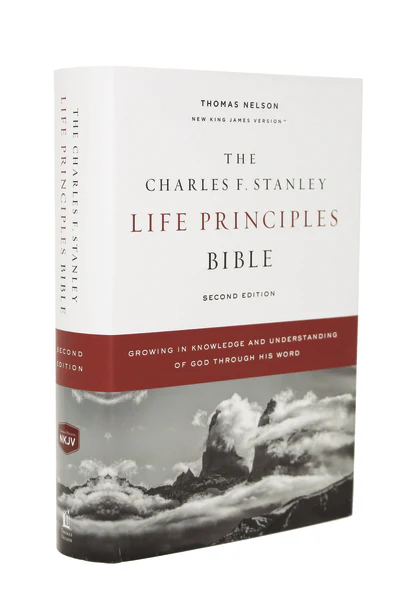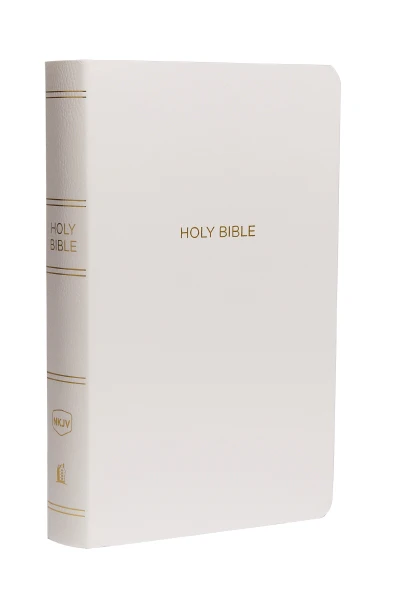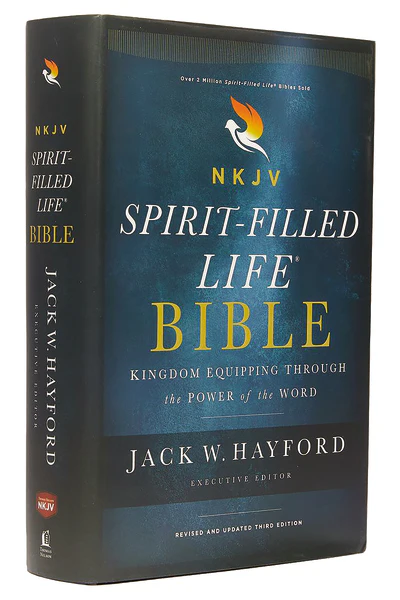Ezra 5
New King James Version
Restoration of the Temple Resumed(A)
5 Then the prophet (B)Haggai and (C)Zechariah the son of Iddo, prophets, prophesied to the Jews who were in Judah and Jerusalem, in the name of the God of Israel, who was over them. 2 So (D)Zerubbabel the son of Shealtiel and Jeshua the son of [a]Jozadak rose up and began to build the house of God which is in Jerusalem; and (E)the prophets of God were with them, helping them.
3 At the same time (F)Tattenai the governor of the region beyond [b]the River and Shethar-Boznai and their companions came to them and spoke thus to them: (G)“Who has commanded you to build this [c]temple and finish this wall?” 4 (H)Then, accordingly, we told them the names of the men who were constructing this building. 5 But (I)the eye of their God was upon the elders of the Jews, so that they could not make them cease till a report could go to Darius. Then a (J)written answer was returned concerning this matter. 6 This is a copy of the letter that Tattenai sent:
The governor of the region beyond the River, and Shethar-Boznai, (K)and his companions, the Persians who were in the region beyond the River, to Darius the king.
7 (They sent a letter to him, in which was written thus.)
To Darius the king:
All peace.
8 Let it be known to the king that we went into the province of Judea, to the [d]temple of the great God, which is being built with [e]heavy stones, and timber is being laid in the walls; and this work goes on diligently and prospers in their hands.
9 Then we asked those elders, and spoke thus to them: (L)“Who commanded you to build this temple and to finish these walls?” 10 We also asked them their names to inform you, that we might write the names of the men who were chief among them.
11 And thus they returned us an answer, saying: “We are the servants of the God of heaven and earth, and we are rebuilding the [f]temple that was built many years ago, which a great king of Israel built (M)and completed. 12 But (N)because our fathers provoked the God of heaven to wrath, He gave them into the hand of (O)Nebuchadnezzar king of Babylon, the Chaldean, who destroyed this temple and (P)carried the people away to Babylon. 13 However, in the first year of (Q)Cyrus king of Babylon, King Cyrus issued a decree to build this [g]house of God. 14 Also, (R)the gold and silver articles of the house of God, which Nebuchadnezzar had taken from the temple that was in Jerusalem and carried into the temple of Babylon—those King Cyrus took from the temple of Babylon, and they were given to (S)one named Sheshbazzar, whom he had made governor. 15 And he said to him, ‘Take these articles; go, carry them to the temple site that is in Jerusalem, and let the house of God be rebuilt on its former site.’ 16 Then the same Sheshbazzar came and (T)laid the foundation of the house of God which is in Jerusalem; but from that time even until now it has been under construction, and (U)it is not finished.”
17 Now therefore, if it seems good to the king, (V)let a search be made in the king’s treasure house, which is there in Babylon, whether it is so that a decree was issued by King Cyrus to build this house of God at Jerusalem, and let the king send us his pleasure concerning this matter.
1 Timothy 5
New King James Version
Treatment of Church Members
5 Do not rebuke an older man, but exhort him as a father, younger men as brothers, 2 older women as mothers, younger women as sisters, with all purity.
Honor True Widows
3 Honor widows who are really widows. 4 But if any widow has children or grandchildren, let them first learn to show piety at home and (A)to repay their parents; for this is [a]good and acceptable before God. 5 Now she who is really a widow, and left alone, trusts in God and continues in supplications and prayers (B)night and day. 6 But she who lives in [b]pleasure is dead while she lives. 7 And these things command, that they may be blameless. 8 But if anyone does not provide for his own, (C)and especially for those of his household, (D)he has denied the faith (E)and is worse than an unbeliever.
9 Do not let a widow under sixty years old be taken into the number, and not unless she has been the wife of one man, 10 well reported for good works: if she has brought up children, if she has lodged strangers, if she has washed the saints’ feet, if she has relieved the afflicted, if she has diligently followed every good work.
11 But [c]refuse the younger widows; for when they have begun to grow wanton against Christ, they desire to marry, 12 having condemnation because they have cast off their first [d]faith. 13 And besides they learn to be idle, wandering about from house to house, and not only idle but also gossips and busybodies, saying things which they ought not. 14 Therefore I desire that the younger widows marry, bear children, manage the house, give no opportunity to the adversary to speak reproachfully. 15 For some have already turned aside after Satan. 16 If any believing [e]man or woman has widows, let them [f]relieve them, and do not let the church be burdened, that it may relieve those who are really widows.
Honor the Elders
17 Let the elders who rule well be counted worthy of double honor, especially those who labor in the word and doctrine. 18 For the Scripture says, (F)“You shall not muzzle an ox while it treads out the grain,” and, (G)“The laborer is worthy of his wages.” 19 Do not receive an accusation against an elder except (H)from two or three witnesses. 20 Those who are sinning rebuke in the presence of all, that the rest also may fear.
21 I charge you before God and the Lord Jesus Christ and the [g]elect angels that you observe these things without (I)prejudice, doing nothing with partiality. 22 Do not lay hands on anyone hastily, nor (J)share in other people’s sins; keep yourself pure.
23 No longer drink only water, but use a little wine for your stomach’s sake and your frequent [h]infirmities.
24 Some men’s sins are (K)clearly evident, preceding them to judgment, but those of some men follow later. 25 Likewise, the good works of some are clearly evident, and those that are otherwise cannot be hidden.
Footnotes
- 1 Timothy 5:4 NU, M omit good and
- 1 Timothy 5:6 indulgence
- 1 Timothy 5:11 Refuse to enroll
- 1 Timothy 5:12 Or solemn promise
- 1 Timothy 5:16 NU omits man or
- 1 Timothy 5:16 give aid to
- 1 Timothy 5:21 chosen
- 1 Timothy 5:23 illnesses
Ezra 6
New King James Version
The Decree of Darius
6 Then King Darius issued a decree, (A)and a search was made in the [a]archives, where the treasures were stored in Babylon. 2 And at [b]Achmetha, in the palace that is in the province of (B)Media, a scroll was found, and in it a record was written thus:
3 In the first year of King Cyrus, King Cyrus issued a (C)decree concerning the house of God at Jerusalem: “Let the house be rebuilt, the place where they offered sacrifices; and let the foundations of it be firmly laid, its height sixty cubits and its width sixty cubits, 4 (D)with three rows of heavy stones and one row of new timber. Let the (E)expenses be paid from the king’s treasury. 5 Also let (F)the gold and silver articles of the house of God, which Nebuchadnezzar took from the temple which is in Jerusalem and brought to Babylon, be restored and taken back to the temple which is in Jerusalem, each to its place; and deposit them in the house of God”—
6 (G)Now therefore, Tattenai, governor of the region beyond the River, and Shethar-Boznai, and your companions the Persians who are beyond the River, keep yourselves far from there. 7 Let the work of this house of God alone; let the governor of the Jews and the elders of the Jews build this house of God on its site.
8 Moreover I issue a decree as to what you shall do for the elders of these Jews, for the building of this [c]house of God: Let the cost be paid at the king’s expense from taxes on the region beyond the River; this is to be given immediately to these men, so that they are not hindered. 9 And whatever they need—young bulls, rams, and lambs for the burnt offerings of the God of heaven, wheat, salt, wine, and oil, according to the request of the priests who are in Jerusalem—let it be given them day by day without fail, 10 (H)that they may offer sacrifices of sweet aroma to the God of heaven, and pray for the life of the king and his sons.
11 Also I issue a decree that whoever alters this edict, let a timber be pulled from his house and erected, and let him be hanged on it; (I)and let his house be made a refuse heap because of this. 12 And may the God who causes His (J)name to dwell there destroy any king or people who put their hand to alter it, or to destroy this [d]house of God which is in Jerusalem. I Darius issue a decree; let it be done diligently.
The Temple Completed and Dedicated
13 Then Tattenai, governor of the region beyond the River, Shethar-Boznai, and their companions diligently did according to what King Darius had sent. 14 (K)So the elders of the Jews built, and they prospered through the prophesying of Haggai the prophet and Zechariah the son of Iddo. And they built and finished it, according to the commandment of the God of Israel, and according to the [e]command of (L)Cyrus, (M)Darius, and (N)Artaxerxes king of Persia. 15 Now the temple was finished on the third day of the month of Adar, which was in the sixth year of the reign of King Darius. 16 Then the children of Israel, the priests and the Levites and the rest of the descendants of the captivity, celebrated (O)the dedication of this [f]house of God with joy. 17 And they (P)offered sacrifices at the dedication of this house of God, one hundred bulls, two hundred rams, four hundred lambs, and as a sin offering for all Israel twelve male goats, according to the number of the tribes of Israel. 18 They assigned the priests to their (Q)divisions and the Levites to their (R)divisions, over the service of God in Jerusalem, (S)as it is written in the Book of Moses.
The Passover Celebrated(T)
19 [g]And the descendants of the captivity kept the Passover (U)on the fourteenth day of the first month. 20 For the priests and the Levites had (V)purified themselves; all of them were ritually clean. And they (W)slaughtered the Passover lambs for all the descendants of the captivity, for their brethren the priests, and for themselves. 21 Then the children of Israel who had returned from the captivity ate together with all who had separated themselves from the (X)filth[h] of the nations of the land in order to seek the Lord God of Israel. 22 And they kept the (Y)Feast of Unleavened Bread seven days with joy; for the Lord made them joyful, and (Z)turned the heart (AA)of the king of Assyria toward them, to strengthen their hands in the work of the house of God, the God of Israel.
Hebrews 9:15-28
New King James Version
15 And for this reason (A)He is the Mediator of the new covenant, by means of death, for the redemption of the transgressions under the first covenant, that (B)those who are called may receive the promise of the eternal inheritance.
The Mediator’s Death Necessary
16 For where there is a testament, there must also of necessity be the death of the testator. 17 For (C)a testament is in force after men are dead, since it has no power at all while the testator lives. 18 (D)Therefore not even the first covenant was dedicated without blood. 19 For when Moses had spoken every [a]precept to all the people according to the law, (E)he took the blood of calves and goats, (F)with water, scarlet wool, and hyssop, and sprinkled both the book itself and all the people, 20 saying, (G)“This is the (H)blood of the covenant which God has commanded you.” 21 Then likewise (I)he sprinkled with blood both the tabernacle and all the vessels of the ministry. 22 And according to the law almost all things are [b]purified with blood, and (J)without shedding of blood there is no [c]remission.
Greatness of Christ’s Sacrifice
23 Therefore it was necessary that (K)the copies of the things in the heavens should be [d]purified with these, but the heavenly things themselves with better sacrifices than these. 24 For (L)Christ has not entered the holy places made with hands, which are [e]copies of (M)the true, but into heaven itself, now (N)to appear in the presence of God for us; 25 not that He should offer Himself often, as (O)the high priest enters the Most Holy Place every year with blood of another— 26 He then would have had to suffer often since the foundation of the world; but now, once at the end of the ages, He has appeared to put away sin by the sacrifice of Himself. 27 (P)And as it is appointed for men to die once, (Q)but after this the judgment, 28 so (R)Christ was (S)offered once to bear the sins (T)of many. To those who (U)eagerly wait for Him He will appear a second time, apart from sin, for salvation.
Read full chapterFootnotes
- Hebrews 9:19 command
- Hebrews 9:22 cleansed
- Hebrews 9:22 forgiveness
- Hebrews 9:23 cleansed
- Hebrews 9:24 representations
Scripture taken from the New King James Version®. Copyright © 1982 by Thomas Nelson. Used by permission. All rights reserved.
Bible Gateway Recommends






